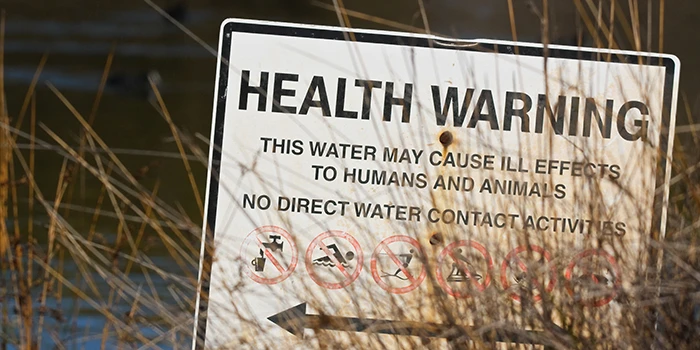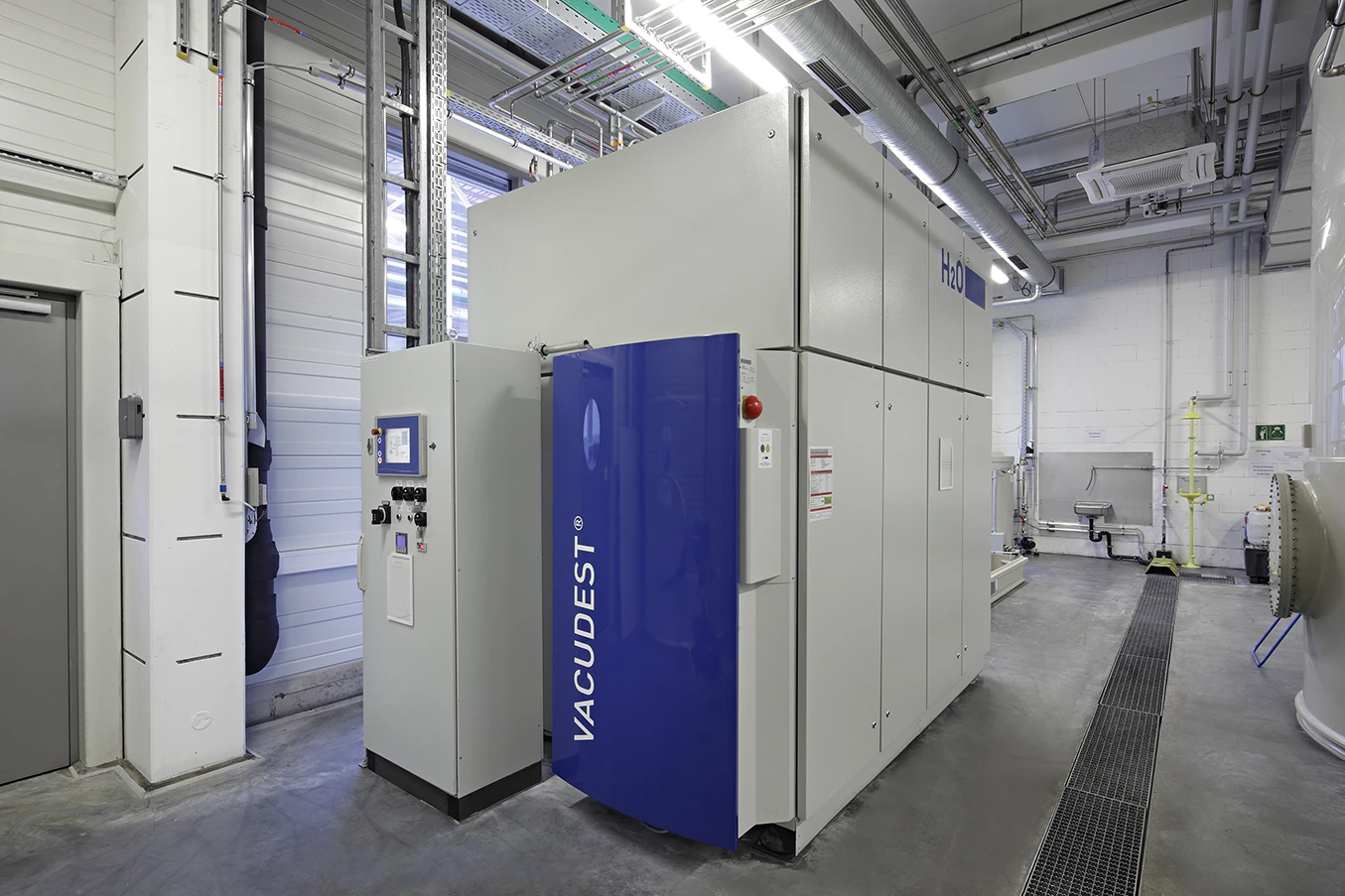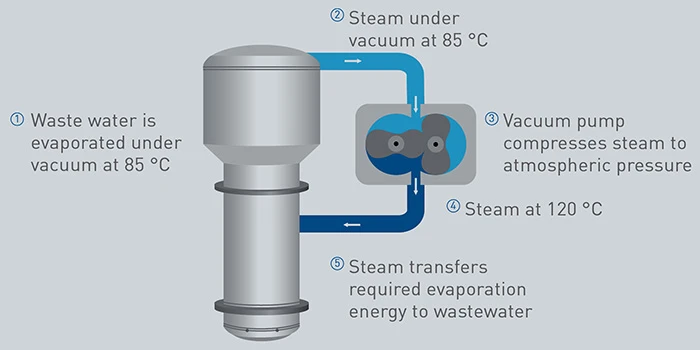Contact us
Sustainability is one of the most important and wide-ranging issues of our time. Industry is also increasingly focusing on the sustainable use of resources. As a result, more and more industrial companies are facing the challenge of combining their ecological and economic goals in the best possible way.
The use of fresh water is a particularly critical aspect of environmental management, as around 20 per cent of the world's fresh water resources are used by industry.
This is why industry needs sustainable and economical solutions for modern wastewater management, such as the realisation of wastewater-free production by means of recycling. Companies can seek independent advice to find the right system for them. For example, from the experts for wastewater-free production at H2O GmbH.
The availability of water is not only important for the environment, but also for companies, as industrial processes are often water intensive. Rising production costs and destabilisation of supply chains are just two worrying aspects.
The wastewater generated during the production process also presents companies with challenges. In many cases, it is properly treated by wastewater systems, sometimes even reused or disposed of in an environmentally friendly manner. In some countries, however, it is unfortunately still discharged untreated into public waters.

Health Warning: Polluted water makes people sick – not just animals.
© michaelgeorgeau - iStock
Many of the hazardous substances from industry are not easily biodegradable and therefore accumulate in water sediments. This discharge of residual pollution into public waters has serious consequences. Animals and plants are increasingly being polluted in the long term and some of them are dying. And the effects of water pollution are also devastating for us humans. The polluted water from rivers and the impurities from the water sediments find their way into the groundwater through cracks in the ground - and thus end up in the drinking water.
In order to prevent toxic substances from industrial wastewater, such as PFAS or heavy metals, from entering public networks, the limit values for the discharge of polluted wastewater into the sewer have been becoming increasingly strict ever the years. In the EU, the limit values are regulated in the so-called Waste Water Regulation.
"But especially in newly industrialising countries such as China, India, Africa or South America, where the number of industrial plants has only grown in recent years, environmental policy is not yet as advanced," explains wastewater expert Mirko Strauss, Head of Sales at H2O GmbH and responsible for wastewater management for industrial customers worldwide. "The cause of the water pollution in the lakes and rivers is clear, so in some cases even stricter environmental limits apply than here in Europe, but the implementation and monitoring of the legislation is not carried out consistently." As a result, the illegal discharge of wastewater into rivers and lakes is still part of everyday life.
Not only stricter limits, but also the search for more efficient options and the growing awareness of sustainability are forcing companies to look at new solutions in wastewater management. There has already been a positive trend for several years, at least when it comes to water consumption. "And companies' awareness of sustainable solutions is also increasing enormously," says Strauss happily.

Modern water treatment systems treat the contaminated process water so well that valuable water can be recovered. This not only reduces fresh water consumption, but also minimises the environmental impact. Examples of such systems include membrane filtration, reverse osmosis, chemical/physical or biological purification processes and vacuum distillation. If you are not sure which treatment method is the right one for your application, you can seek independent advice.
"A thorough analysis of the process water produced should be the basis for any sustainable wastewater solution." Says Fabian Argast, Head of Process Design at H2O GmbH, who carries out independent wastewater consulting for industrial companies. "When analysing wastewater, we therefore always focus on the holistic process in order to obtain a system that is tailored to individual needs and objectives." At H2O GmbH, this takes place in the company's own application centre. In the lab, wastewater samples are scrutinised in detail and companies receive a comprehensive and independent report as well as a recommendation for the right wastewater treatment system for their production.
Vacuum distillation has proven to be a successful and tested technology in the past. The vacuum distillation process enables companies to combine sustainability and economic efficiency in a particularly efficient way. The solution is to recycle the production wastewater.

All substances that have a higher boiling point than water remain in the evaporation residue. These include heavy metals, salts, but also organic impurities such as oils, grease or surfactants. Because the water content is evaporated, the volume of the residue is reduced to between 0.5 to 5 per cent of the original wastewater volume. The rising steam, also known as vapour, is virtually free of impurities. After condensation, it can be fed back into the process as clean process water.
Some substances cannot be completely separated by distillation. This is why the distillate from a conventional vacuum distillation is often cloudy and of such poor quality that it has to be post-processed. VACUDEST vacuum distillation sets new standards in terms of optimising the separation process.
Thanks to complementary technologies, distillation in VACUDEST systems achieves crystal-clear liquids of optimum quality compared to conventional evaporators. The innovative Clearcat condensation stage, for example, enables a COD (hydrocarbon) reduction of up to 99 per cent. "This ensures that even high demands on the quality of the reused water can be met," explains Strauss.
The Destcontrol pH controller developed by H2O also ensures consistently high distillate quality. It does so, but not measuring the pH value in the inlet as usual, but in the treated water and reacts immediately. This process ensures consistently stable quality, allowing the waste water to be reused in the process without any problems.
Thanks to state-of-the-art technology and continuous technical development, more and more companies are benefiting from the possibility of recirculating their production wastewater in their own production facilities. In this way, very little water needs to be available and paid for. Fresh water resources are significantly conserved. Companies also benefit from the savings in disposal costs, which means that the investment often pays for itself after just two years.
You have questions on our VACUDEST systems?
Kindly contact us!
Your contact is:
Thomas Dotterweich
Senior Sales Engineer
+49 7627 9239-306
thomasm.dotterweich@h2o-de.com
You need consumables, spare parts or a maintenance date?
We will be pleased to assist you!
Your contact is:
Carles Fité
Technical Customer Support
+49 7627 9239-888
carles.fite@h2o-de.com
You want to be part of our team and create the wastewater-free future with us?
We will tell you how!
Your contact is:
Bettina Böhringer
Human Resources
+49 7627 9239-201
career@h2o-de.com